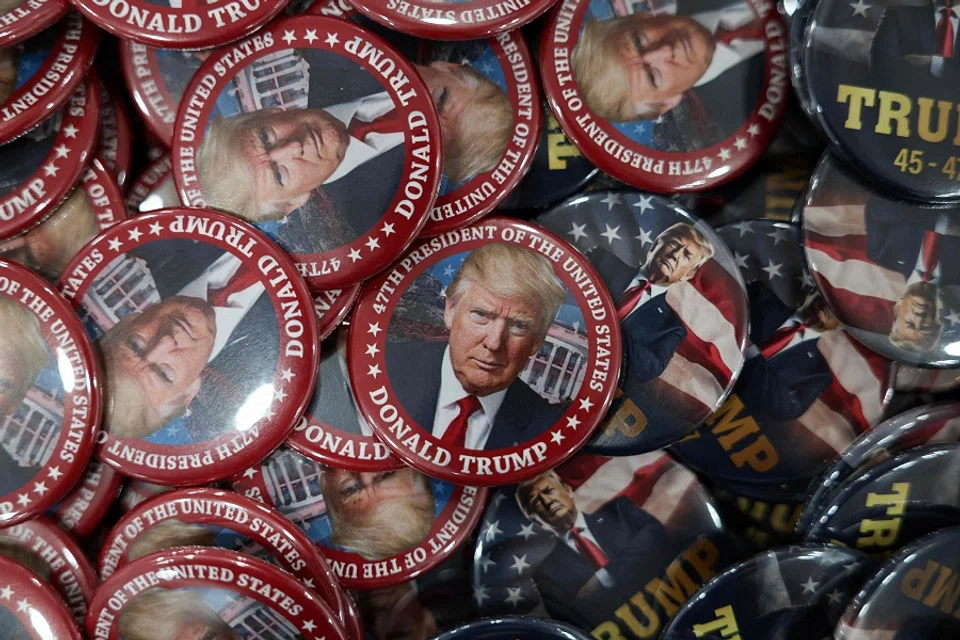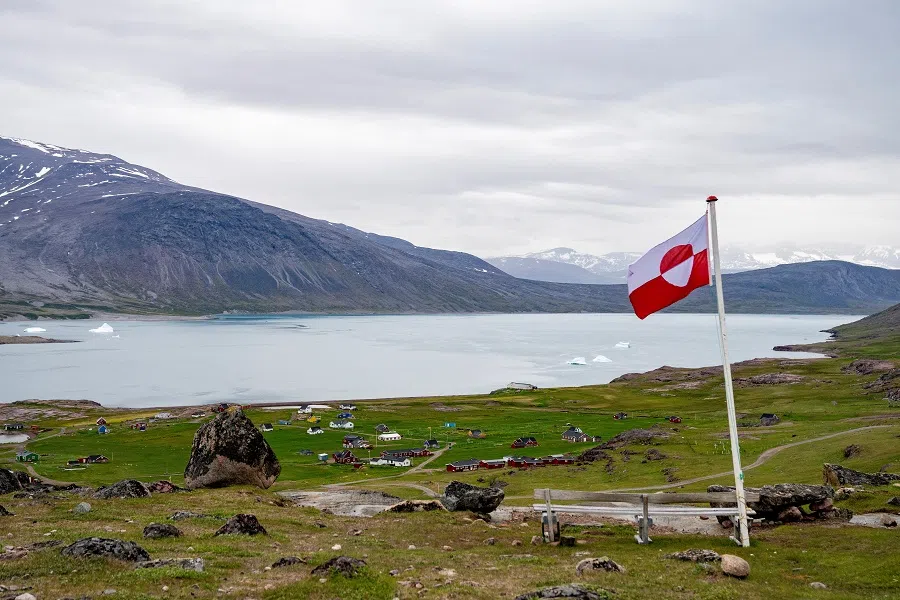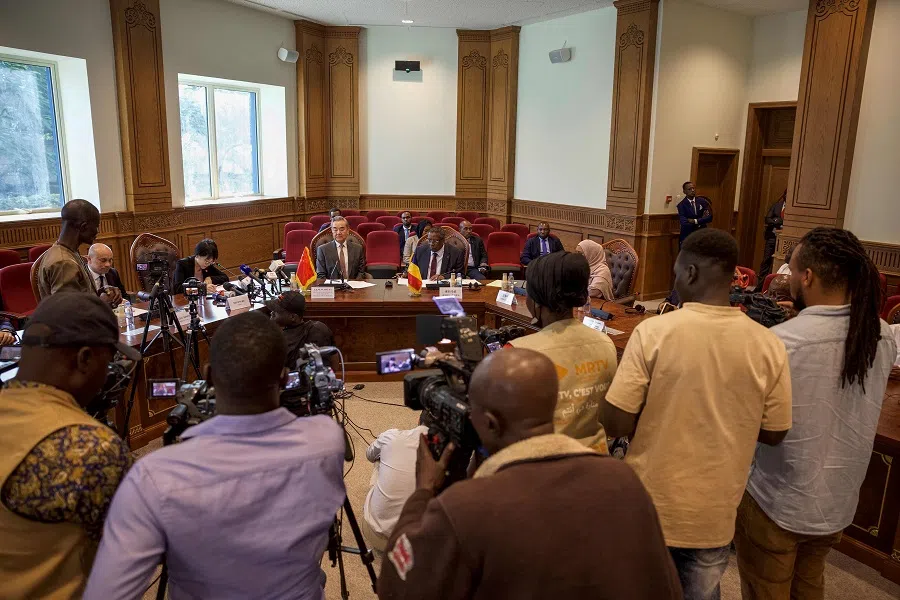What is Trump up to about China?
As Trump gears up for his second term, will he push ahead on the statements he has made in recent months — whether on the Panama Canal, Greenland or raising tariffs — that are either directly or indirectly related to China? US academic Zhu Zhiqun takes a closer look.

In the weeks leading up to his inauguration on 20 January 2025, Donald Trump made some controversial remarks about Canada, Mexico, the Panama Canal and Greenland that surprised and offended many people. It is quite striking that he seemed nice to China and even invited Chinese leader Xi Jinping to his inauguration.
Trump has certainly not spared China, and before long China will have his full attention. Perhaps he is just warming up for his major move on China. In fact, most of his recent foreign policy remarks are either directly or indirectly related to China.
China in Trump’s sights
He said the US should retake the Panama Canal and control Greenland, and he has not ruled out using military force to achieve this. He suggested that Panama charges the US exorbitant rates for using the Canal and that Chinese soldiers are stationed there — two claims that have been debunked by Panama’s government. However, there is no doubt that policy makers in Washington are concerned about China’s growing presence in Latin America. Retaking the Panama Canal could be Trump’s way of pushing back against China’s influence.
There is a similar rationale behind Trump’s intention to buy Greenland. He did not mention China specifically, but China may well be part of his calculation.

Greenland, a self-governing territory of Denmark, is abundant in resources, including oil, gas and rare earth minerals essential for the semiconductor industry and defence industry.
Few people believe he would opt to work with China to seek a win-win result. Washington’s toxic anti-China atmosphere would also compel him to be tough on China.
China controls most of the world’s supply of rare earth minerals, which it could use as a weapon against the US should the tariff war escalate. In December 2024, for the first time, China targeted the US with a ban of critical mineral exports, including gallium, germanium and antimony. China has also become more active in the Arctic region in recent years, which adds to the US-China global rivalry. From the US perspective, Greenland is valuable both economically and strategically.
Likely to be compelled to be tough on China
China will put Trump in a quandary again: he can choose to cut deals with Beijing and risk being branded an appeaser by the China hawks in Washington, or he can vehemently confront and contain Beijing, risking escalation of tensions and a potential military clash.
Trump has said that if the US and China work together, they can solve all the world’s problems. Few people believe he would opt to work with China to seek a win-win result. Washington’s toxic anti-China atmosphere would also compel him to be tough on China.
In its final week in office, the Biden administration unveiled more restrictions to limit China’s advances in artificial intelligence with new export controls on global sales of American AI chips and technology. Trump will most likely retain Biden’s policy since anything less would make him look weaker than Biden.
US sanctions have hurt China’s economy but also spurred China’s innovation and productivity, as evidenced by Huawei’s continued success and China’s dominance in the global electric vehicle market.

A stable and friendly relationship with the second Trump administration serves China’s interest. This is particularly important as the Chinese economy is experiencing some headwinds, prompted by weak consumer demand and a sagging housing market, as well as demographic challenges. In the past few months, the Chinese government has been rolling out broad stimulus measures to revive the economy.
Since Trump’s election in November 2024, the official People’s Daily has published a series of editorials by the pen name Zhong Sheng (The Bell or “Voice of China”) to present the authoritative views of the Chinese leadership. For example, immediately following Trump’s win on 7 November, the editorial “Stabilising China-US Relations is in the National Interest of Both Countries” was published on 8 November. And a week before Trump’s inauguration, another editorial titled “Fully Recognising the Mutually Beneficial and Win-Win Nature of the Sino-US Relationship” came out on 13 January.
China braces for a deteriorating relationship with the US
Meanwhile, China seems prepared for a deteriorating relationship with the US in the years ahead. It is diversifying trade partners to reduce reliance on the US market. It has expanded investments in and trade with Global South countries, particularly countries in Southeast Asia, Latin America and Africa.
To offset the potential impact from the expected tense US-China relationship, China has also improved relations with Japan, India, Australia and the EU.
Maintaining a 35-year old tradition of beginning the diplomatic calendar with high-level visits to Africa, Politburo member and Foreign Minister Wang Yi visited Namibia, the Republic of Congo, Chad and Nigeria in early January 2025, further consolidating China-African community.
To offset the potential impact from the expected tense US-China relationship, China has also improved relations with Japan, India, Australia and the EU.

For example, Chinese President Xi Jinping and Japanese Prime Minister Shigeru Ishiba met on the sidelines of the Asia-Pacific Economic Cooperation summit in Peru in November 2024. In December 2024, Japanese Foreign Minister Takeshi Iwaya visited China and proposed a security dialogue between the two countries, which was welcomed by Beijing. On 13 January, senior officials from the ruling parties of Japan and China met in Beijing for the first time in seven years, and on the same day, Japan hosted a Chinese military delegation that was on a rare exchange visit. China-India relations have also markedly improved after the two countries reached a border agreement in October 2024.
Trump’s actions could draw allies further to China’s side
China’s foreign trade grew by 5% year-on-year in 2024 to reach 43.85 trillion RMB (US$5.98 trillion), setting a new record, according to official data. China remained the world’s largest trader in goods in 2024. It has become a major trading partner for over 150 economies.
... raising tariffs on imports across the board would hurt a lot of countries including US allies.
China’s trade surplus reached a record high of almost US$1 trillion in 2024 while the US trade deficit is likely to clock in at around US$1 trillion. Only a third of China’s surplus was with the US, and only a third of the American trade deficit was with China.
If the Trump administration raises tariffs only on China, the US may find itself with bigger trade deficits with other countries as American companies will import from them instead. But raising tariffs on imports across the board would hurt a lot of countries including US allies.
It is too early to tell what exactly Trump will do to the US-China relationship and the international community. No one should underestimate his capacity to destabilise the status quo and create turmoil in the world. China, like other countries anxious about the next four years, will have to prepare for the worst and hope for the best.





